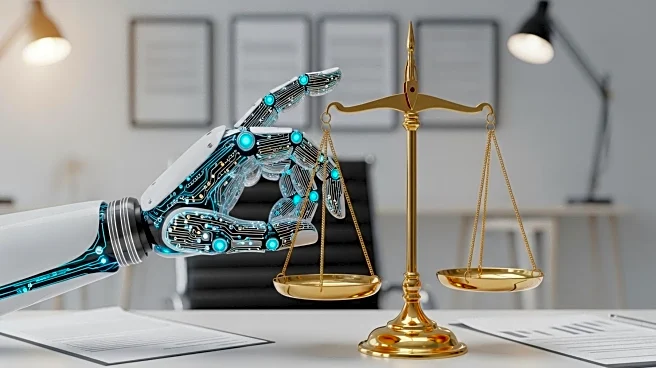What's Happening?
The legal industry is increasingly adopting artificial intelligence tools for various tasks, including legal research, scheduling, and decision-making. According to the American Bar Association's 2025 Legal Industry Report, 31% of legal professionals use generative AI for work-related tasks. Adam Shepherd, an associate at Weinberg Wheeler Hudgins Gunn & Dial, uses AI as a brainstorming partner and for administrative tasks like proofreading. However, the integration of AI raises ethical questions about overreliance and confidentiality. Shepherd's firm uses closed-source platforms to manage sensitive information securely.
Why It's Important?
AI's growing presence in the legal field signifies a shift in how legal professionals approach their work, potentially increasing efficiency and reducing costs. However, it also poses ethical challenges, such as ensuring accuracy and maintaining client confidentiality. As AI tools become more prevalent, legal professionals must balance the benefits of AI with the need for human oversight and judgment. The evolving role of AI in law may also influence educational requirements for law students, emphasizing technological competence.
Beyond the Headlines
The integration of AI in law could lead to broader changes in legal practice, including the development of new ethical standards and the potential for AI to assist in complex legal reasoning. As AI tools improve, they may offer more sophisticated analysis and insights, transforming traditional legal workflows. This evolution may also impact the legal job market, with AI potentially automating routine tasks and shifting the focus to higher-level strategic work.









